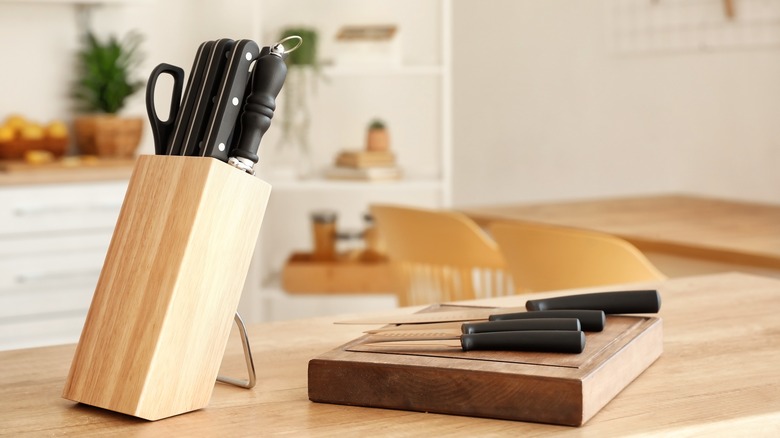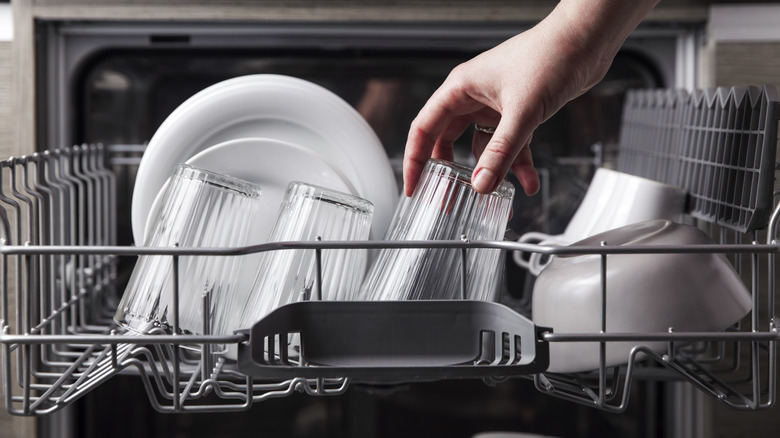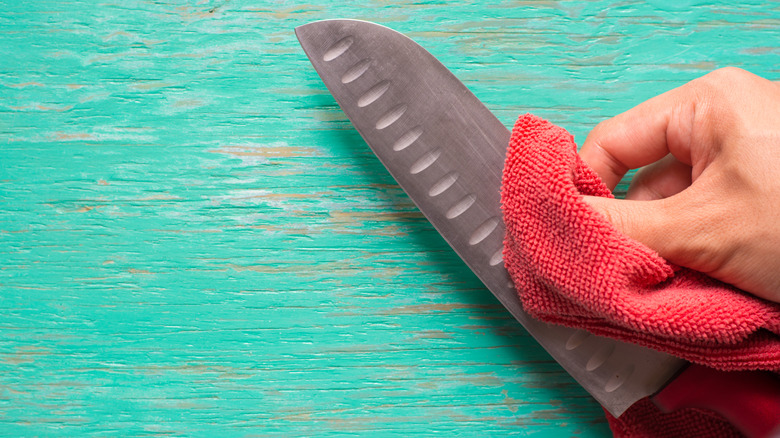Why You Should Never Wash Your Kitchen Knives In The Dishwasher
Typically, kitchen utensils have icons that state if they are safe for the dishwasher, either fully or only in the top rack. When an item is marked "dishwasher safe" with any of such icons, it is made durable enough for the heat and chemicals circulating in the machine. Not all items have the correct symbols; however, specific production methods and materials can guide you on what you should hand wash instead.
Common kitchen items that aren't dishwasher safe include cast iron pans, vintage china, insulated or wood utensils, and knives. China, for example, may be painted by hand and, therefore, likely to fade in a dishwasher cycle. Insulated utensils or those made from wood are also likely to be damaged, which is why they must be hand washed. Knives are another set of utensils that shouldn't be washed in the dishwasher, and here is the reason behind that and what you can do instead.
Potential issues
As you take care of any knife marks on your plates, you should also be careful of marks on the knives themselves. Kitchen knives should never be washed in the dishwasher because they can be damaged from going through the cycle. According to Cooking Light, the detergents can make holes in the steel, while the dishwasher movements can damage the blade and the handle. The edges can also get dull and lose any useful coatings on them. When washed this way, your knives will break down over time and show signs of water damage like rust and corrosion.
Knives in the dishwasher also pose a safety problem. It's usually advised to keep the blade up during a cycle, so the water runs off and doesn't sit on the blades. However, having knives facing upward on the dishwasher shelf risks serious injuries for whoever reaches in to grab the utensils when the cycle is done.
What to do instead
A kitchen knife used in food preparation should be hand washed immediately after use with a gentle, soft sponge. While cleaning, let the soap sit for a bit and avoid scrubbing directly on the sharp edge. After, it should be dried with a towel and properly stored away. This is so that it doesn't stay wet for long. Soak for a few minutes only when there are stubborn stains, and apply oil to the blade of a carbon steel knife after drying to prevent corrosion. If any rust develops, soak the knife in a paste of baking soda and water for an hour and then scrub it off.
Another thing you can do is invest in knives that have been specially created to be dishwasher-safe. Many brands have come out with dishwasher-safe kitchen knife sets to circumvent this common problem and increase convenience. These knives are typically made of high-carbon stainless steel to withstand anything during the dishwashing cycle.


